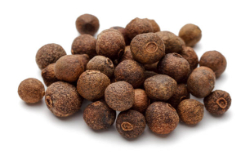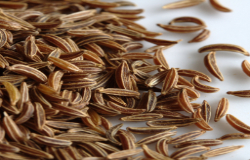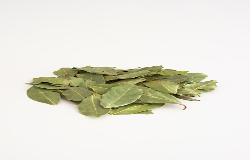Chili peppers Nutrition facts
Chili peppers

Chili peppers, despite their fiery hotness, are one of the very popular spices known for their medicinal and health benefiting properties. The chili is a fruit pod of the plant belonging to the nightshade family (Solanaceae), of the genus, Capsicum.
Scientific name: Capsicum annuum. Some of other common members in the Solanaceae family are tomato, aubergine, potato, etc.
Chili plant is a small, perennial shrub with a woody stem growing up to a meter in height. It is native to the Central American region, where it employed as one of the main spice ingredients in Mexican cuisine for centuries. Later, it was introduced to the rest of the world by Spanish and Portuguese explorers during the 16th and 17th centuries. Today, chili pepper is grown widely in many parts of the world as an important commercial crop.
Several cultivars of chili peppers are grown all around the world. Depending upon cultivar type, a chili plant produces flowers that subsequently develop into fruit pods of variable size, shape, color, and pungency. Moreover again, depending on the cultivar type, their hotness ranges from mild and fleshy (Mexican bell peppers) to fiery as in tiny, Nag Jalokiya chili peppers of the Indian subcontinent.
Similar Food
-
 Allspice 263 Cal
Allspice 263 Cal -
 Anise seed 337 Cal
Anise seed 337 Cal -

-
 Bay leaf 313 Cal
Bay leaf 313 Cal -
 Black pepper 255 Cal
Black pepper 255 Cal
Source of Calorie
-
Carbs8.81 g 75%
-
Protein1.87 g 16%
-
Fat0.44 g 9%
How long to burn off 40 Calories?
*Approximate base minutes for a 25-year-old, 65 kg adult at moderate intensity.
| Nutrition Principle | Nutrition Value | Percentage of RDA |
|---|---|---|
| Principle | ||
| Energy | 40 Kcal | 2% |
| Carbohydrates | 8.81 g | 7% |
| Protein | 1.87 g | 3% |
| Total Fat | 0.44 g | 2% |
| Cholesterol | 0 mg | 0% |
| Dietary Fiber | 1.5 g | 3% |
| Vitamins | ||
| Folates | 23 µg | 6% |
| Niacin | 1.244 mg | 8% |
| Pantothenic acid | 0.201 mg | 4% |
| Pyridoxine | 0.506 mg | 39% |
| Riboflavin | 0.086 mg | 6.5% |
| Thiamin | 0.72 mg | 6% |
| Vitamin A | 952 IU | 32% |
| Vitamin C | 143.7 mg | 240% |
| Vitamin E | 0.69 mg | 4.5% |
| Vitamin K | 14 µg | 11.5% |
| Electrolytes | ||
| Sodium | 9 mg | 0.5% |
| Potassium | 322 mg | 7% |
| Minerals | ||
| Calcium | 14 mg | 1.5 % |
| Copper | 0.129 mg | 14% |
| Iron | 1.03 mg | 13% |
| Magnesium | 23 mg | 6% |
| Manganese | 0.187 mg | 8% |
| Phosphorus | 43 mg | 6% |
| Selenium | 0.5 µg | 1% |
| Zinc | 0.26 mg | 2% |
| Phyto-nutrients | ||
| Carotene-ß | 534 µg | -- |
| Carotene-α | 36 µg | -- |
| Cryptoxanthin-ß | 40 µg | -- |
| Lutein-zeaxanthin | 709 µg | -- |